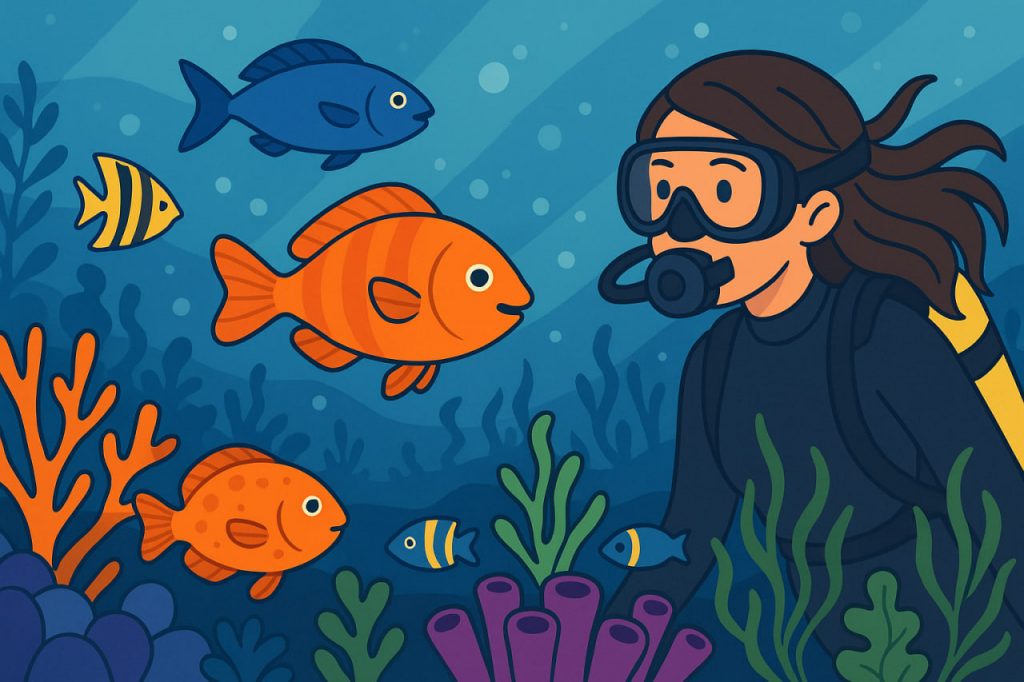Fish are among the oldest and most diverse creatures on Earth, having inhabited our planet’s oceans, rivers, and lakes for over 500 million years. From tiny coral reef dwellers to massive ocean predators, fish play a vital role in maintaining the balance of aquatic ecosystems and supporting human civilization through food, culture, and science. Understanding their biology and importance reveals not only how life evolved in the seas but also how deeply connected humanity remains to these extraordinary animals.
The Diversity and Evolution of Fish
Fish belong to a vast group of aquatic vertebrates characterized by gills, fins, and a streamlined body adapted for swimming. Scientists estimate that there are over 34,000 known species—making fish the most diverse group of vertebrates on Earth. The earliest fish appeared during the Cambrian Period, long before dinosaurs or mammals existed. Over millions of years, they evolved into distinct lineages, including cartilaginous fish like sharks and rays, and bony fish such as salmon, tuna, and goldfish. This evolutionary success lies in their adaptability—fish have conquered nearly every aquatic habitat, from the deepest ocean trenches to icy mountain streams.
Anatomy and Adaptations
Fish anatomy reflects a perfect balance between efficiency and survival. Their gills extract oxygen from water, while their fins allow precise movement and balance. The swim bladder—a gas-filled organ in many species—helps control buoyancy, letting them rise or sink effortlessly. Scales protect their bodies from parasites and injury, while a layer of mucus reduces drag in the water. Some species, such as the anglerfish, have developed extraordinary adaptations, including bioluminescence to lure prey in the dark abyss. Others, like the clownfish, form symbiotic relationships with sea anemones for protection.
Ecological Importance of Fish
Fish are critical to the health of aquatic ecosystems. They regulate populations of smaller organisms, recycle nutrients, and form a key part of the food web. Predatory fish like tuna and barracuda maintain ecological balance by controlling prey populations, while herbivorous species like parrotfish clean coral reefs by grazing on algae. Additionally, fish migration—such as the salmon’s journey from ocean to river—transports nutrients across ecosystems, enriching both marine and freshwater environments. Without fish, many ecosystems would collapse, leading to widespread environmental consequences.
Fish and Human Civilization
Throughout history, fish have been a cornerstone of human survival. Ancient cultures worshiped fish as symbols of fertility, wisdom, and abundance. Today, over 3 billion people depend on fish as a primary source of protein. Commercial fishing supports economies worldwide, yet overfishing, pollution, and climate change threaten this vital resource. Coral reef destruction and ocean acidification have already reduced global fish populations dramatically. Experts warn that if unsustainable fishing continues, many species could face extinction within decades.
Health Benefits of Eating Fish
Fish are not only essential for ecosystems but also for human health. They are rich in omega-3 fatty acids, vitamin D, and high-quality protein, supporting heart and brain health. Medical research shows that regular fish consumption can reduce inflammation, improve cognitive function, and promote healthy development in children. However, doctors caution against excessive intake of fish high in mercury, such as swordfish and certain types of tuna. People should consult nutrition specialists to choose safe, sustainable sources of seafood.
Conservation and Sustainable Fishing
Modern science and environmental organizations emphasize sustainable fishing—catching fish without depleting populations or damaging marine habitats. Practices like selective gear use, catch limits, and aquaculture (fish farming) help maintain fish stocks. Yet, aquaculture must also be managed carefully to prevent water pollution and disease. Marine biologists advocate for marine protected areas (MPAs), which allow ecosystems to recover naturally. By supporting eco-certified seafood and responsible fishing policies, consumers can directly contribute to the preservation of aquatic biodiversity.
The Fascinating Behavior of Fish
Beyond their practical value, fish display surprisingly complex behaviors. Some species use tools, communicate through sounds or color changes, and even exhibit social cooperation. The cleaner wrasse, for example, removes parasites from larger fish in mutualistic “cleaning stations.” Recent studies suggest that certain fish can recognize themselves in mirrors, a sign of self-awareness once thought unique to mammals. These discoveries challenge our understanding of intelligence and consciousness in the animal kingdom.
Expert Perspectives
According to marine ecologist Dr. Sylvia Earle, “Fish are not just seafood—they are wildlife that deserve respect and protection.” Similarly, Dr. Daniel Pauly, a fisheries scientist, emphasizes that “sustainable fishing is not about banning fishing—it’s about allowing fish and people to coexist for generations to come.” Their shared message highlights the moral and ecological responsibility humanity holds toward the world beneath the waves.
Interesting Facts
- Fish have inhabited the Earth for more than 500 million years, long before dinosaurs appeared.
- The whale shark is the largest fish in the world, reaching up to 18 meters in length.
- Some fish can change gender during their lifetime, depending on environmental conditions.
- The coelacanth, once thought extinct, was rediscovered alive in 1938.
- Goldfish can distinguish between different human faces and learn simple tasks.
Glossary
- Gill – An organ that allows fish to extract oxygen from water.
- Cartilaginous Fish – Fish with skeletons made of cartilage, such as sharks and rays.
- Bony Fish – Fish with bone skeletons, including most modern species.
- Swim Bladder – A gas-filled organ that helps fish control their buoyancy.
- Food Web – The network of feeding relationships within an ecosystem.
- Overfishing – The practice of catching fish faster than populations can reproduce.
- Omega-3 Fatty Acids – Essential nutrients beneficial for heart and brain health.
- Marine Protected Area (MPA) – A region of ocean where fishing and industrial activity are limited to preserve ecosystems.
- Symbiosis – A close and often mutually beneficial relationship between two species.
- Aquaculture – The farming of fish and other aquatic organisms for food.


